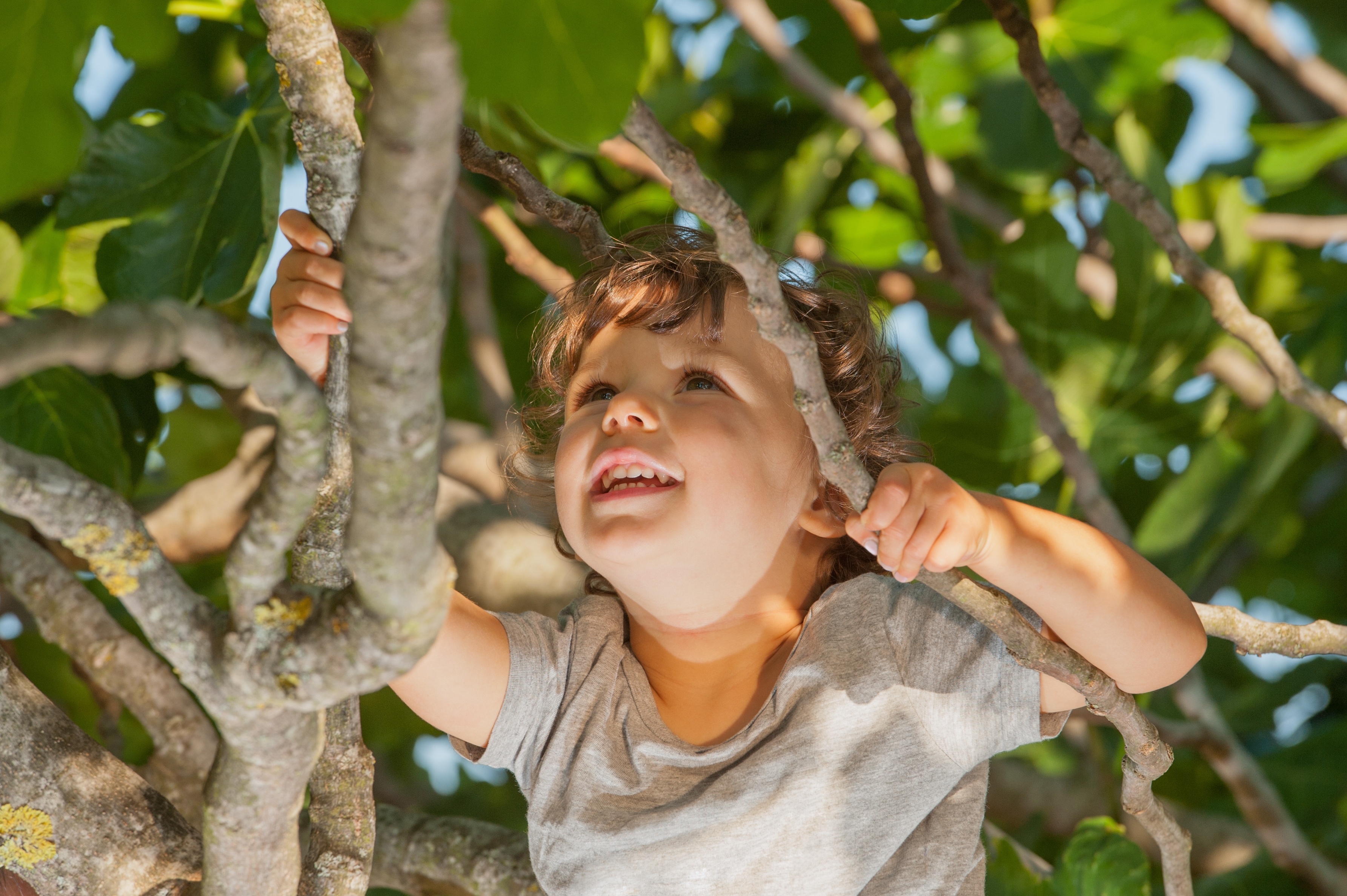
We believe that outdoor learning, play and connection with nature are the fundamental parts of every child’s education. The positive impact outdoor play has on a child’s learning and development in the early years plays a crucial part in a child’s later adult life. Engaging in quality time in the outdoors not only allows a child to be physical but it increases their well-being, health and happiness, core values of Portland Nurseries.
At Portland Nurseries children play outside every day in all weathers, giving them direct contact with the wonders of nature and the changing seasons. We take a Forest School approach to outdoor learning by using the natural resources found in our gardens and our woodland environments to enhance every child’s learning and development. From making fairy soup in the mud kitchen , to fishing with sticks found on the woodland floor. Children are free to let their imaginations run wild.
Across our nurseries children spend their days exploring and investigating the natural habitat around them, looking under logs and leaves, climbing trees, making dens, creating art out of natural objects. There are raised vegetable and flower beds for the children to plant in, mud kitchens, willow dens, hobbit houses, log piles to attract insects, oak tunnels, tree houses, sheltered spots for storytelling, large sand pits and many sustainable, natural timber climbing areas.Children will learn about ecosystems, seasons, and the interconnected web of life. They’ll build treehouses of knowledge, climb branches of curiosity, and discover the wonders of our green planet.
Health and happiness are fundamental values of Portland Nurseries and outdoor play provides safe and supervised opportunities for physical activity as well as promoting a sense of confidence and well-being. Our focused approach to outdoor play will allow your child to experience new challenges and adventures, investigate and explore, encourage problem solving and creative skills, evaluate risk, be part of a team and increase motivation and concentration.
There as so many benefits about the positive effect outdoor play has on a child's development . Here are some of the key benefits.
- provide the flexibility and freedom for child-initiated, experimental learning which increases motivation and concentration.
- encourage the development of physical skills; co-ordination; manipulation and strength while developing an understanding of risk and building self-confidence.
- increase health and well-being
- develop a sense of empathy with the natural world around them
- develop strong social skills & improve communication and co-operation with the ability to work in groups
- develop a sense of trust and achievement, self-esteem and confidence
- encourage problem solving and creative skills
- inspire children to enjoy nature and the outdoors for a lifetime to come.
NHS guidelines suggest that children under the age of 5 need 3 hours of exercise per day and that it should be a mixture of bone strengthening, muscle building and cardiovascular. Our Outdoor Play approach provides a range of opportunities for these needs.
Here is a small sample of some of the Forest school activities children will engage in
- Making dens
- Exploring the natural environment
- Creative in the ‘mud kitchen’
- Climbing trees
- Story Telling
- Learning about insects, animals, plants and trees through investigation
- Art from natural objects found in the gardens and woodland.
- Planting and cultivating crops
- Cooking on a camp fire
- Working as a team and learning problem-solving skills through making dens and structures
- Learning about boundaries and risk assessments
- Learning about the natural environment and how their actions impact upon it
- Learning the safe use of tools, such as whittlers
Watch "Re-wild the child"
Watch "Re-wild the child" here - George Monbiot argues that the more time children spend in the classroom, the worse they do at school because our narrow education system only rewards a particular skill set. He says that when you take failing pupils to the countryside, they often thrive – yet funding for outdoor education is being cut.
Children develop excellent independence skills from an early age. They put on outdoor wet suits, boots and coats independently in preparation for outdoor play.
Holly Bank Ofsted Outstanding Report 2024



